Artificial quartz countertops have surged in popularity in recent years, and for good reason. As someone who has explored various countertop materials, I find that artificial quartz strikes a great balance between aesthetics, durability, and ease of maintenance. Unlike natural stone countertops, quartz is engineered, which means it’s made from crushed quartz stone mixed with resin and pigments. This process results in a non-porous, extremely hard surface that mimics the look of natural stone while offering enhanced durability. Quartz countertops are available in a wide range of colors and patterns, many of which replicate the veining and texture of marble or granite, but with more consistency.
One of the biggest benefits of artificial quartz countertops is their durability. Quartz is one of the hardest minerals on Earth, and when combined with resin, the surface becomes incredibly resistant to scratches, chips, and stains. In my experience, this makes quartz a fantastic option for busy kitchens and bathrooms, where spills and heavy use are common. You don’t have to worry about oil, wine, or juice penetrating the surface, as quartz’s non-porous nature prevents liquids from seeping in. This makes it an ideal choice for families or anyone who doesn’t want to spend time constantly maintaining their countertops.
Another appealing aspect of quartz countertops is how easy they are to care for. Since they are non-porous, there’s no need to seal them regularly, unlike granite or marble. Simply wiping them down with mild soap and water keeps them looking pristine. I love that quartz countertops offer a worry-free experience when it comes to cleaning. While harsh chemicals and abrasives should be avoided to protect the surface, the day-to-day maintenance is minimal. This ease of care makes Quartz an excellent choice for people with busy lifestyles or for those who don’t want to invest a lot of time into upkeep.
One thing I’ve always appreciated about artificial quartz is its uniform appearance. Natural stone can have variations in color and pattern, which some people love, but others prefer the consistency that quartz offers. Because it’s engineered, each slab of quartz is more uniform in terms of veining, color, and texture. This can be particularly useful when trying to match large areas of the countertop, as you don’t have to worry about inconsistencies that are common with natural stone. Additionally, the range of colors available in quartz is extensive. From classic white and gray to bold hues like deep blues or greens, there’s a quartz design for every style preference.

Despite its many advantages, quartz countertops do have a few limitations, which are important to consider. While quartz is highly resistant to stains and scratches, it’s not entirely impervious to heat. I always advise clients to use trivets or heat pads when placing hot pots and pans on quartz surfaces. Direct heat can damage the resin and cause discoloration or cracks. While quartz is durable, it’s not as heat-resistant as natural stone like granite, so taking a little extra precaution can help keep the countertops in top shape for years to come.
I’ve found that artificial quartz is also an excellent choice for those looking to create a seamless, modern look in their kitchens or bathrooms. Quartz slabs are typically large, which means fewer seams or joints are needed during installation. This creates a sleek, streamlined appearance that works beautifully in contemporary designs. The lack of seams also means fewer areas for dirt and bacteria to accumulate, further enhancing quartz’s hygienic qualities. I often recommend quartz to clients who prioritize both form and function, as it combines the beauty of natural stone with the practical benefits of a man-made material.
In terms of environmental impact, artificial quartz countertops are a more eco-friendly option than many natural stones. Since quartz is engineered, it often incorporates recycled materials, reducing the need for extensive mining. Some manufacturers also prioritize sustainable practices, producing quartz slabs in factories that use energy-efficient methods. While no countertop material is completely without environmental impact, I find that quartz offers a greener alternative to other options, particularly if you choose brands that emphasize sustainability in their production processes.
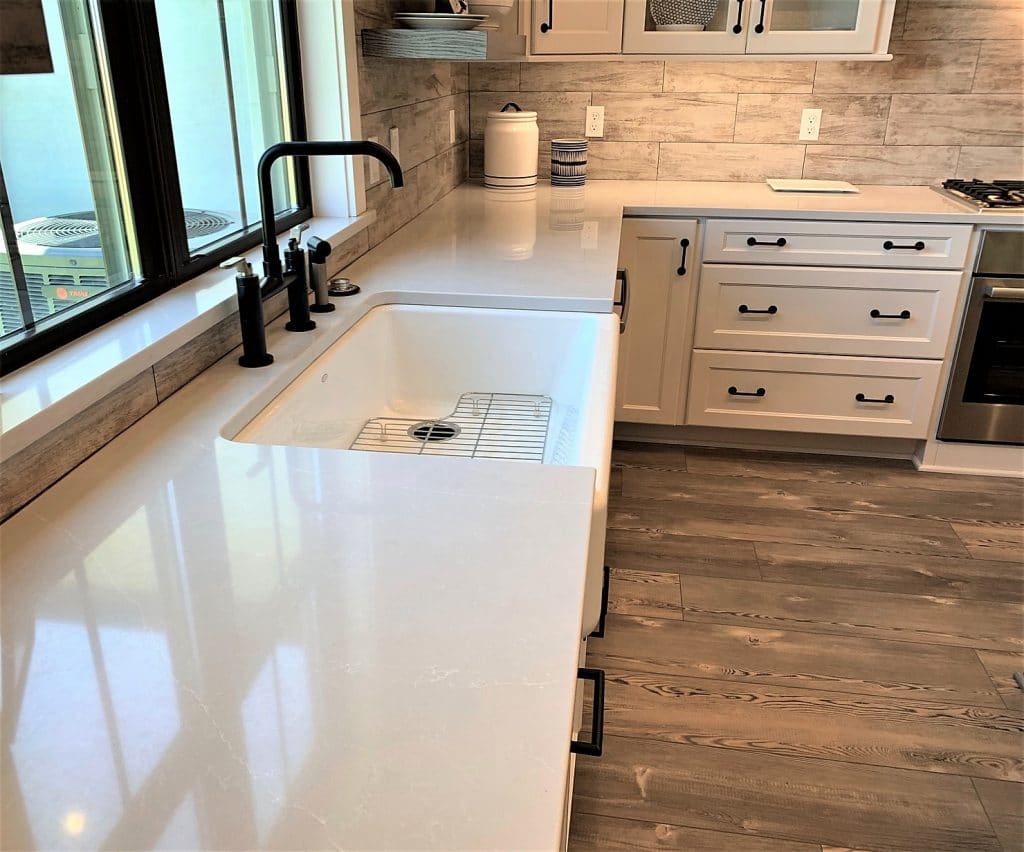
One of the other reasons I love quartz is its versatility in design. Whether you’re going for a minimalist modern look or something more traditional, there’s a quartz countertop to suit your needs. I’ve seen it used in ultra-modern kitchens with sleek cabinetry and stainless steel appliances, as well as in more rustic settings paired with warm wood tones. The variety of finishes available, from polished to matte, also adds to its versatility. I’ve had clients opt for a honed quartz finish, which provides a more understated, soft appearance, while others have chosen a high-gloss finish for a reflective, luxurious look.
Cost is another important factor to consider when choosing quartz countertops. While they are generally more expensive than laminate or tile, they are typically less expensive than high-end natural stones like marble. The price can vary depending on the brand, color, and edge profile you choose, but I’ve found that most homeowners feel the investment is worth it. Given its durability, ease of maintenance, and long-lasting appeal, quartz offers great value for the money, especially when compared to natural stones that require more upkeep.
One of the challenges I’ve encountered with artificial quartz countertops is selecting the right edge profile. Quartz can be fabricated with various edge treatments, from simple square edges to more elaborate ogee or waterfall edges. Choosing the right edge can significantly affect the overall look of your kitchen or bathroom. I typically recommend a rounded edge for a softer, more classic look, while a square edge offers a more modern, streamlined appearance. It’s important to consider the overall style of the room when selecting the edge profile, as this detail can enhance or detract from the aesthetic you’re aiming for.
When it comes to installation, quartz is typically best left to the professionals. While some countertop materials, like laminate, can be installed as a DIY project, quartz requires precise cutting and handling. The slabs are heavy, and any mistakes during installation can be costly. I always recommend working with a skilled fabricator to ensure the quartz countertops are installed correctly. This ensures a seamless finish and prevents issues like uneven seams or poorly fitted edges, which can affect both the appearance and longevity of the countertops.

Another important consideration is how well quartz pairs with other materials. I’ve found that quartz countertops work beautifully with both modern and traditional cabinetry, making them incredibly versatile. In modern kitchens, pairing quartz with sleek, flat-panel cabinetry creates a chic, contemporary look. In more traditional spaces, quartz countertops with detailed veining or softer colors complement the warmth of wood cabinetry. The versatility of quartz allows for endless design possibilities, making it a great choice for any kitchen or bathroom renovation.
Artificial quartz is also an excellent choice for large, open-plan kitchens. Since quartz slabs can be fabricated in larger sizes, it’s easier to cover expansive countertop areas without the need for multiple seams. This is particularly useful for kitchen islands, where a seamless look is often preferred. I love the way quartz can create a bold, unified surface that acts as a focal point in an open-plan space. Whether you choose a light, bright quartz to reflect natural light, or a darker hue to add drama, the impact is undeniable.
Finally, the longevity of artificial quartz countertops makes them a sound investment. With proper care, quartz countertops can last for decades. While they may not have the same historical appeal as natural stone, the engineered nature of quartz ensures that the material will remain strong and beautiful over time. For homeowners looking for a countertop that combines the beauty of natural stone with the practicality of man-made material, quartz is an excellent choice that offers both style and substance.

Common Mistakes to Avoid
Using Harsh Cleaners: Quartz is durable, but harsh chemicals can damage the resin that binds the material. Always use mild soap and water for cleaning.
Placing Hot Pots Directly on the Surface: While quartz is resistant to heat, direct contact with hot cookware can damage it. Always use trivets or heat pads to protect the surface.
Not Considering Edge Profiles: The edge profile of your countertop can dramatically affect its look. Make sure to choose a profile that complements the design of your space.
Ignoring Color Consistency: Unlike natural stone, quartz has a more consistent pattern. However, it’s important to ensure that the slabs used are from the same batch to avoid slight variations in color or pattern.
Attempting DIY Installation: Quartz is heavy and difficult to cut without the right tools. It’s always best to hire professionals to ensure a flawless installation.
Not Accounting for Seams: While quartz can be fabricated in large slabs, seams are sometimes necessary. Make sure your installer can match the pattern to minimize the appearance of seams.
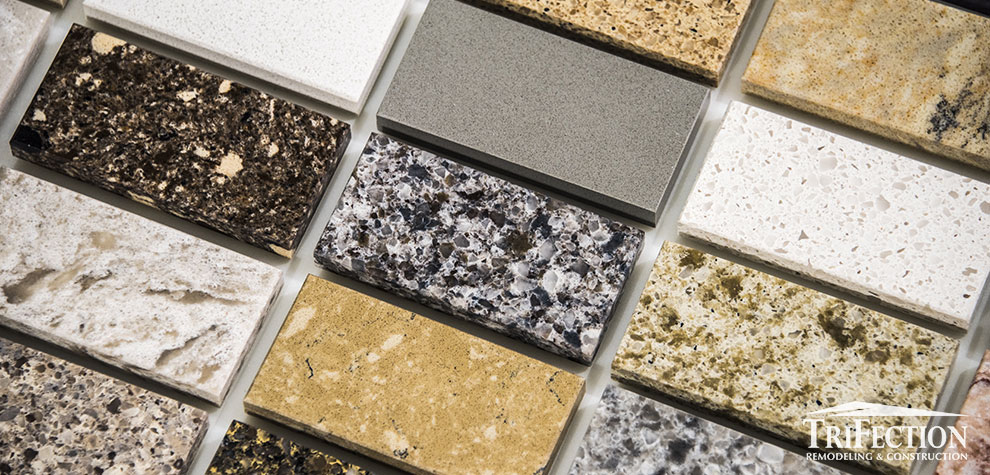
Are quartz countertops better than granite?
Both quartz and granite have their advantages. Quartz is non-porous, making it more stain-resistant and easier to maintain than granite. Granite, being a natural stone, offers unique patterns and colors, but requires regular sealing. Ultimately, the choice depends on your preferences for maintenance and appearance.
How do I clean quartz countertops?
Quartz countertops are easy to clean with mild soap and water. Avoid harsh chemicals and abrasives that can damage the resin. For tougher stains, use a gentle cleaner designed specifically for quartz surfaces.
Can quartz countertops handle heat?
Quartz countertops are heat-resistant but not heatproof. Placing hot pans directly on the surface can damage the resin, causing discoloration or cracks. Always use trivets or heat pads to protect your countertops.
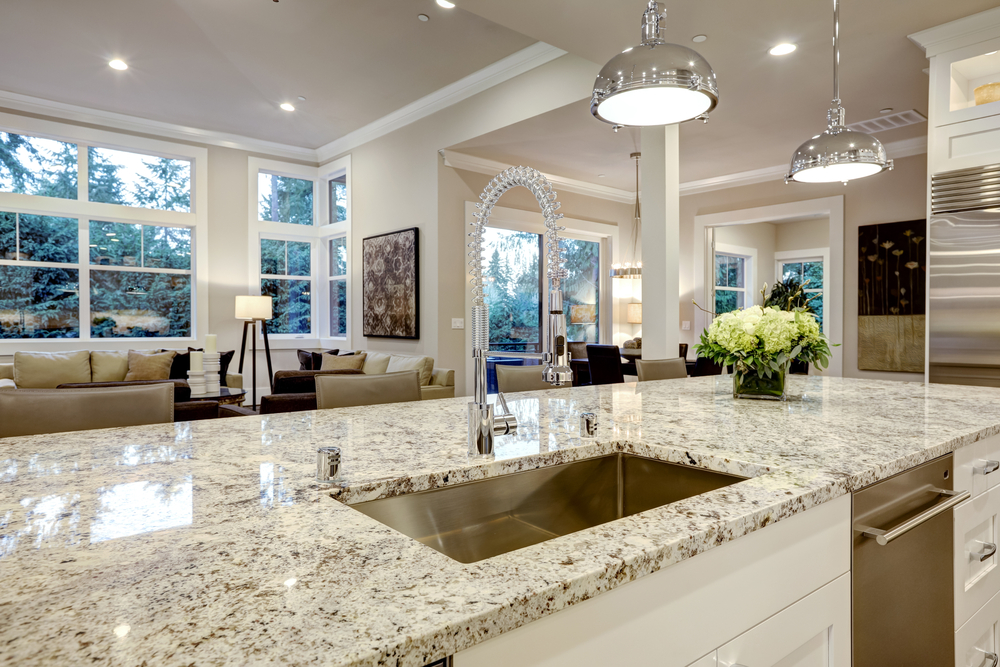
Are quartz countertops expensive?
Quartz countertops tend to be more expensive than laminate or tile but are generally less costly than marble or other high-end natural stones. The price depends on the brand, color, and edge profile, but many homeowners find that quartz offers excellent value for its durability and low maintenance.
Can I install quartz countertops myself?
Quartz is not a DIY-friendly material. The slabs are heavy, and cutting them requires specialized tools. I always recommend hiring a professional to ensure proper installation and a seamless finish.
Do quartz countertops need to be sealed?
No, quartz countertops do not require sealing because they are non-porous. This is one of the main advantages over natural stone, which needs to be sealed regularly to prevent staining. Quartz is virtually maintenance-free, requiring only basic cleaning to keep it looking new.
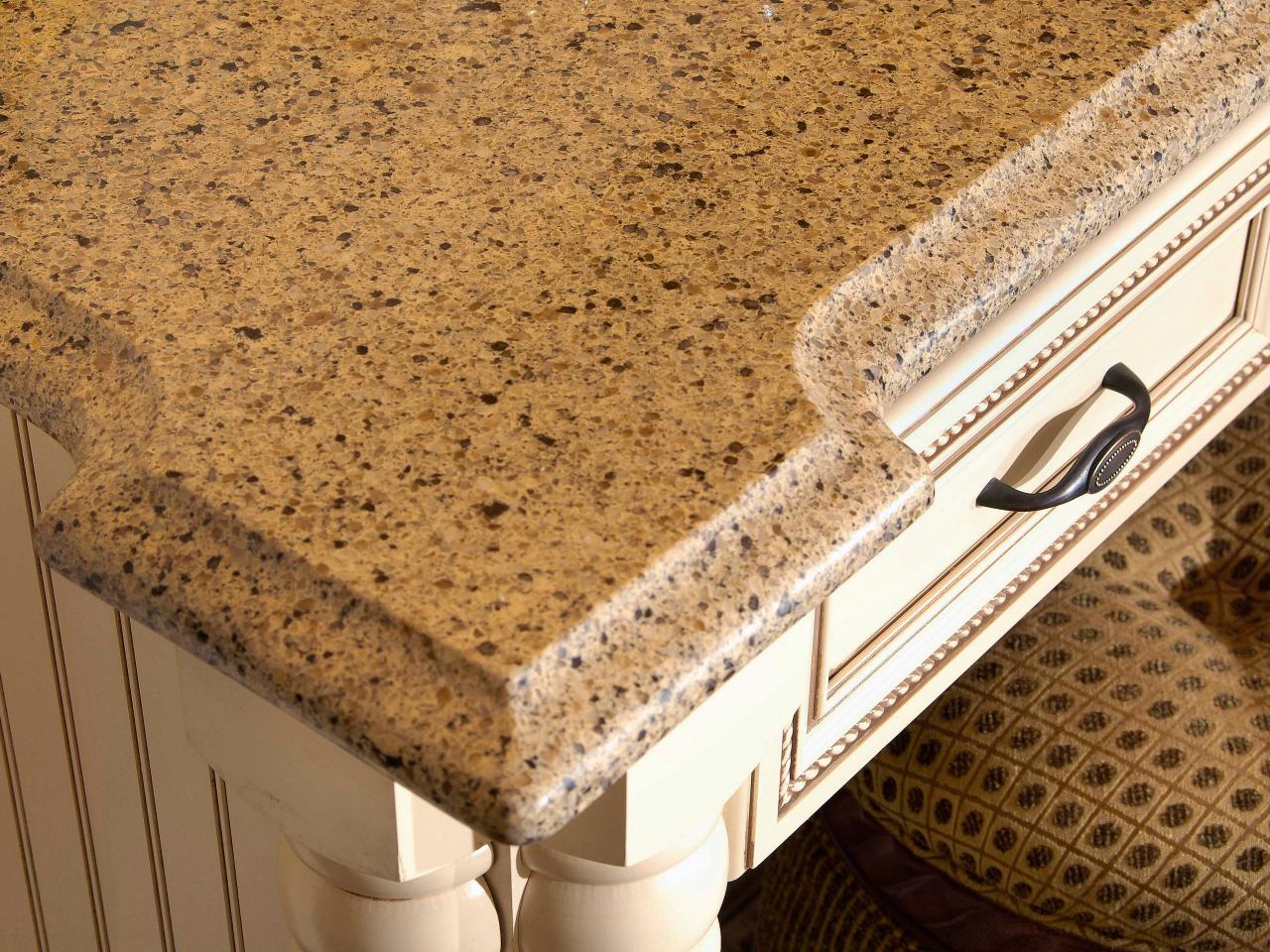
What Are the Pros and Cons of Quartz Countertops?
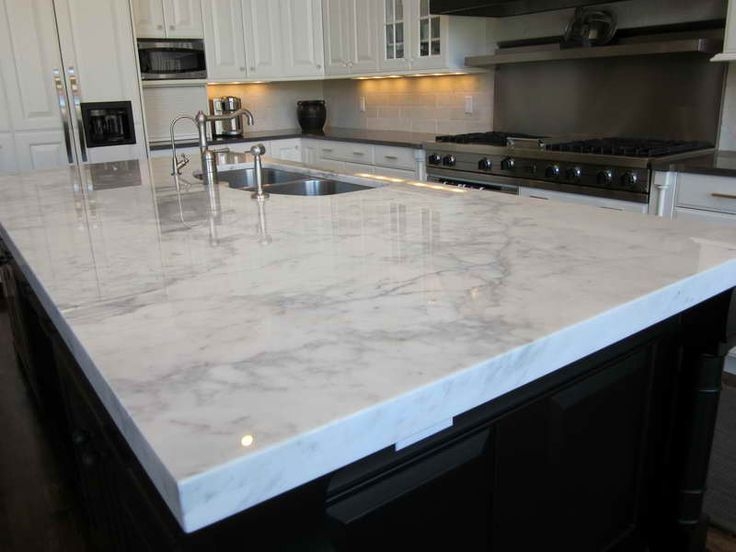
Related articles: